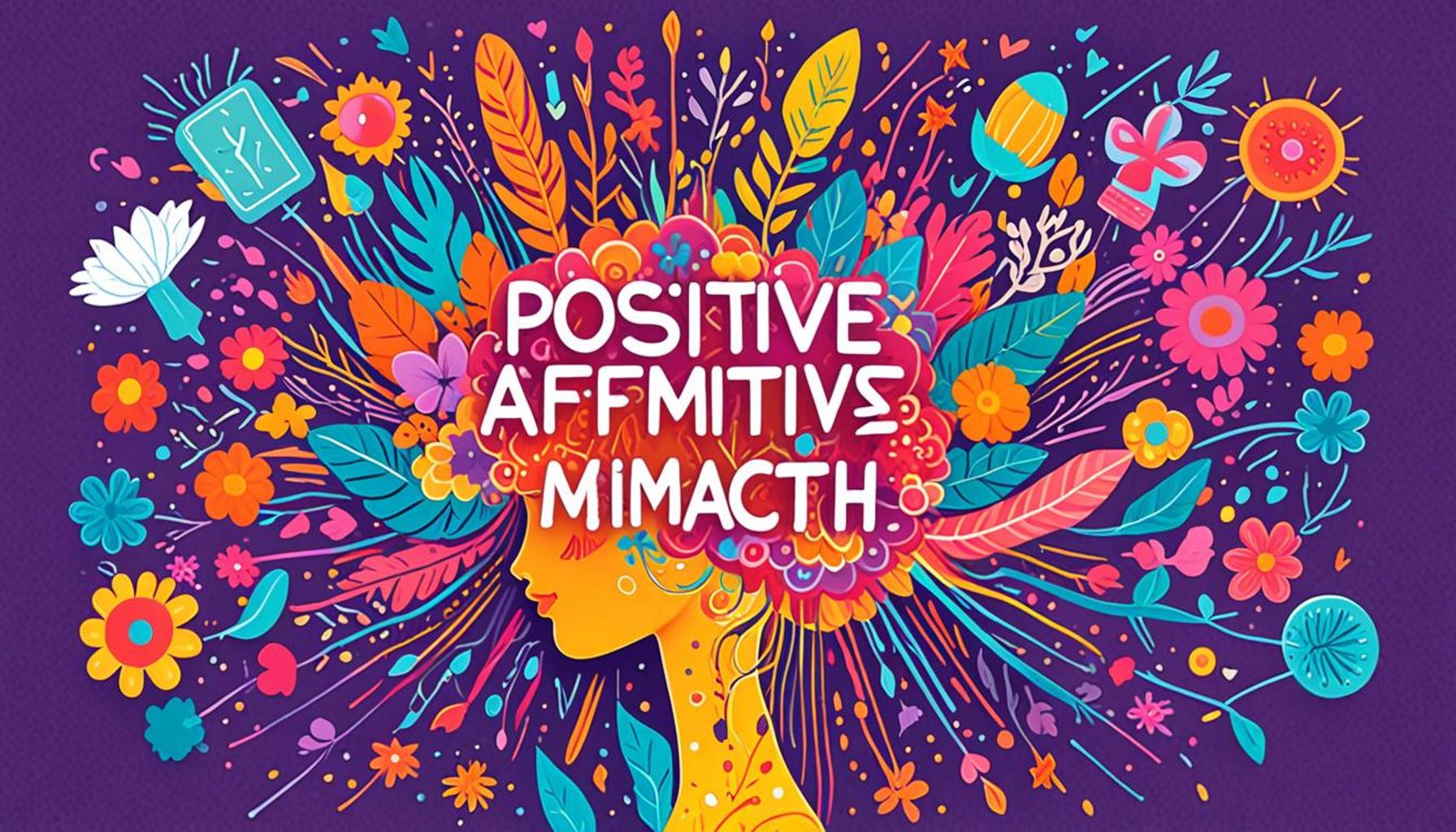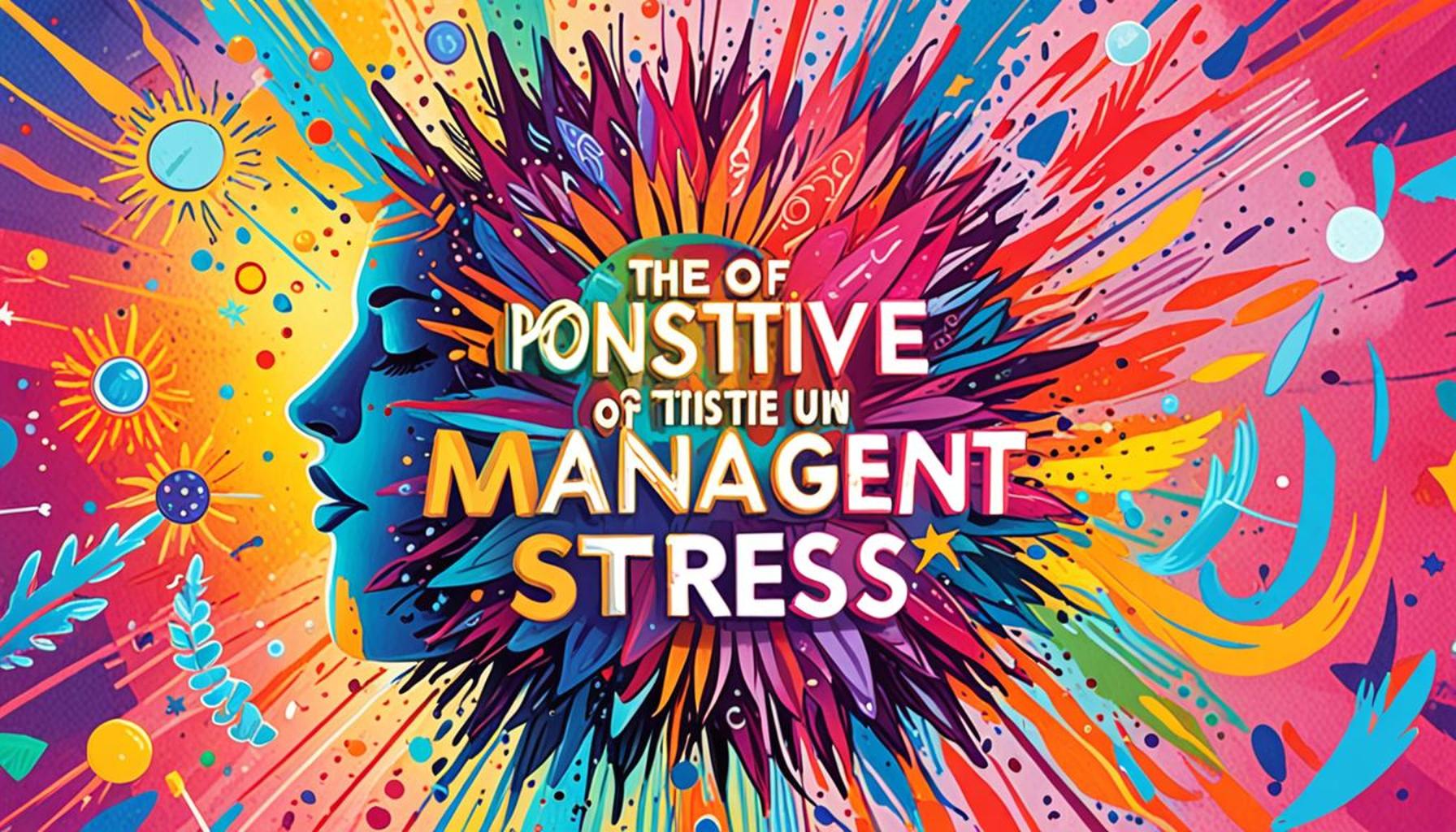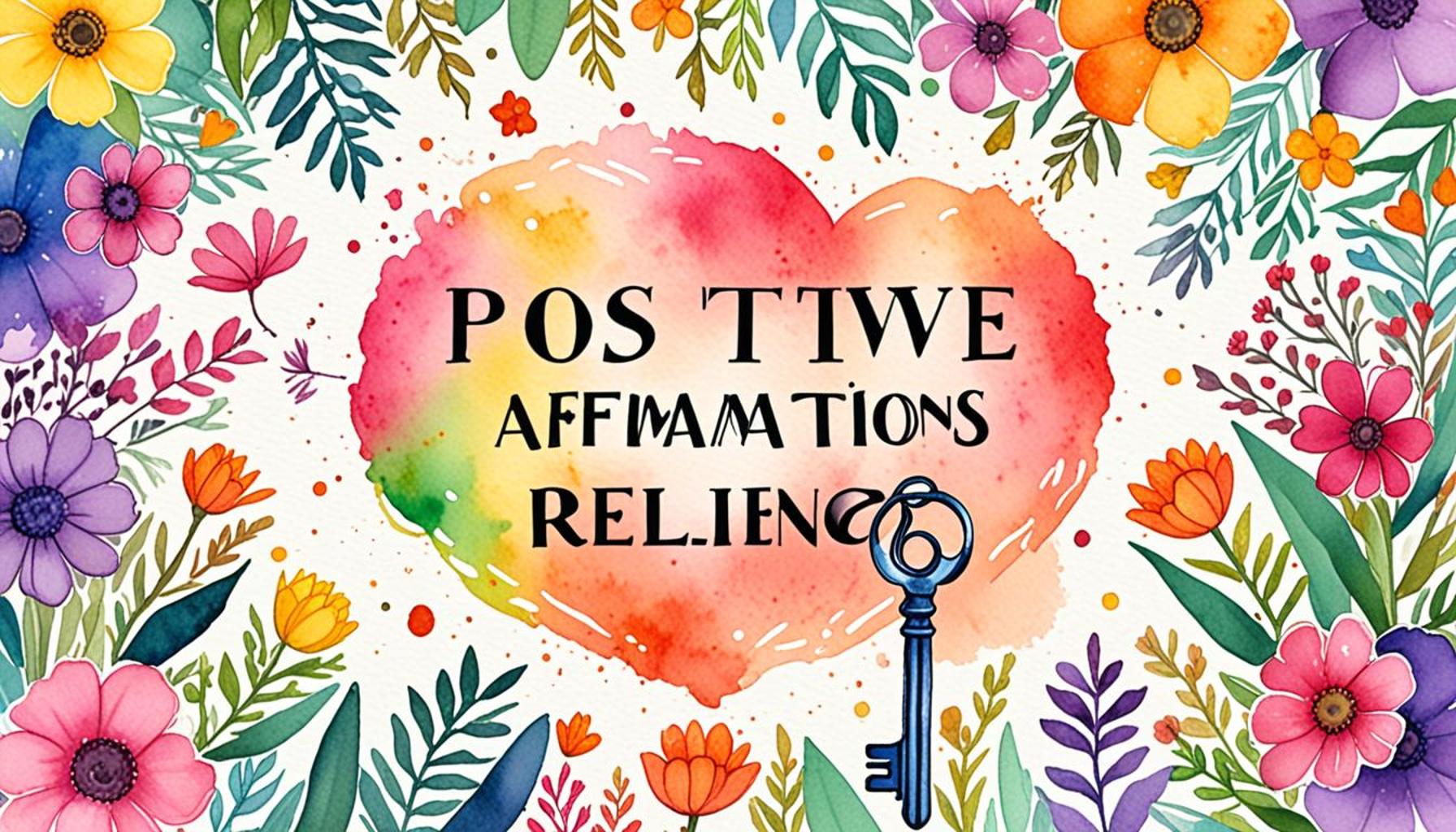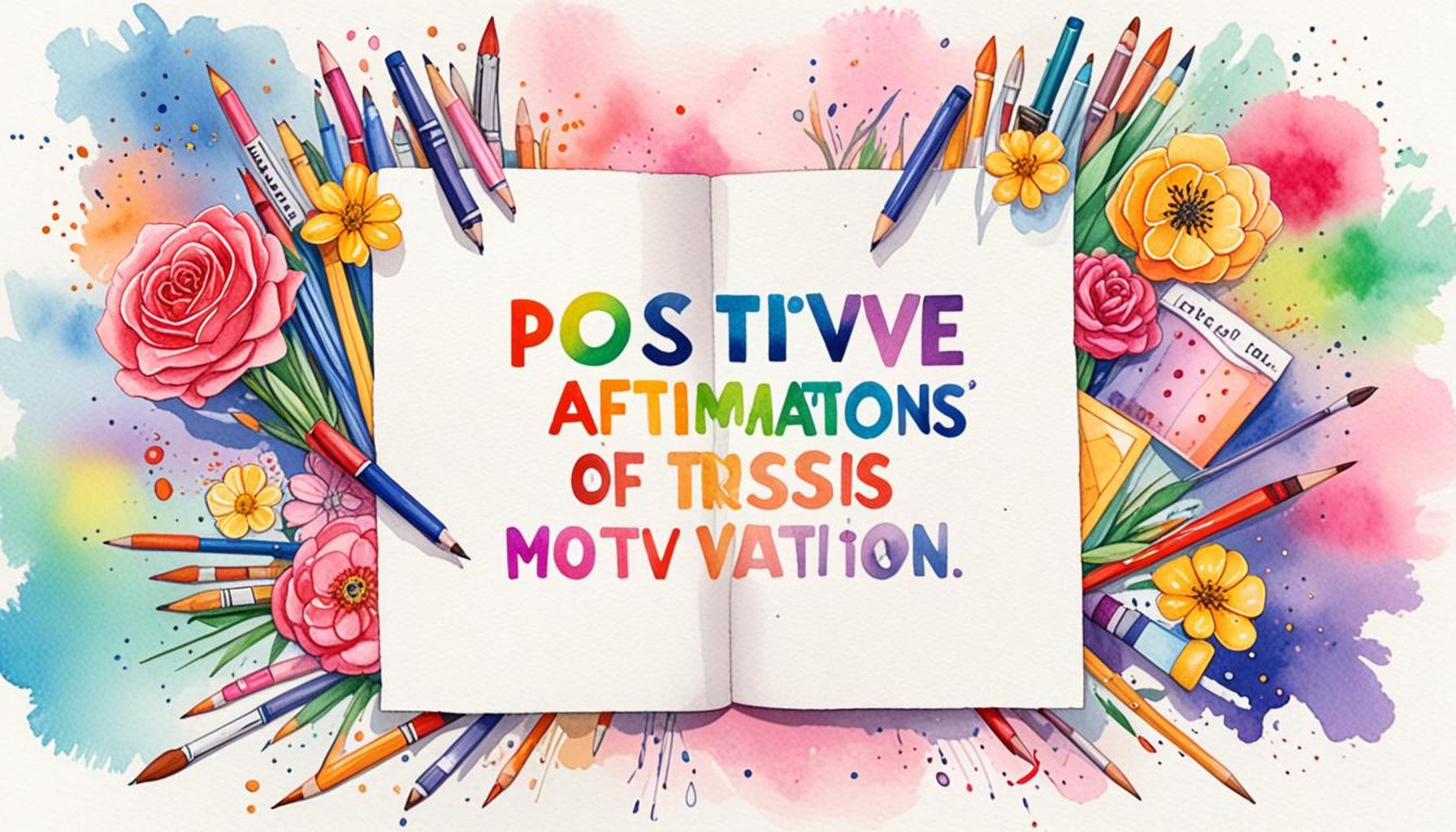Positive Affirmations and Their Impact on Mental Health: Strengthening the Mind for Life’s Challenges

Understanding Positive Affirmations
In today’s fast-paced world, mental health has become a crucial component of overall well-being. People face various challenges that can lead to stress, anxiety, and even depression. Positive affirmations emerge as a powerful tool to combat these emotional struggles.
What Are Positive Affirmations?
Positive affirmations are simple, positive statements that individuals can repeat to themselves. They serve as a means to challenge and overcome negative thoughts while reinforcing a healthier self-image. By repeating these affirmations regularly, individuals can train their minds to foster a positive outlook. Some common examples include:
- “I am worthy of love and respect.”
- “I believe in my ability to overcome obstacles.”
- “Every day, I am becoming a better version of myself.”
These affirmations can be tailored to fit personal experiences and goals, providing a customized emotional toolkit that addresses individual struggles. For instance, someone facing challenges in their career might use, “I attract success and opportunities.” This adaptability makes affirmations relevant to a wide audience.
The Role of Affirmations in Mental Health
Research suggests that engaging with affirmations can significantly influence mental health in several ways:
- Boosts Self-Esteem: Regularly using affirmations can improve self-worth. By consistently reminding oneself of their value, individuals can combat feelings of inadequacy that society often imposes.
- Reduces Anxiety: Positive affirmations help in reframing negative thoughts and reducing anxiety levels. For instance, a student preparing for examinations can repeat, “I am prepared, and I will succeed,” which can alleviate stress and enhance focus.
- Enhances Resilience: Affirmations strengthen the mindset to face life’s challenges head-on. By fostering a positive attitude, individuals are better equipped to handle setbacks, whether they are personal or professional.
In Nigeria, where traditional and modern stresses intertwine, utilizing positive affirmations may offer a pathway to fostering resilience in a rapidly changing environment. The pressure to succeed in a competitive job market alongside cultural expectations can be overwhelming. Delving into this practice may open doors to improved mental health, making it essential for individuals seeking balance amidst turmoil.

For example, a young entrepreneur navigating the complexities of starting a business might adopt affirmations like, “I embrace challenges as opportunities for growth.” This attitude not only motivates but also cultivates a sense of purpose and direction in an unpredictable economic landscape.
Overall, positive affirmations have the potential to revolutionize personal development, especially in contexts where mental health resources may be limited. As more individuals integrate these practices into their daily routines, the collective mindset can shift toward one of positivity and strength, fostering a healthier community.
YOU MAY ALSO LIKE: Read read another article
The Science Behind Positive Affirmations
The use of positive affirmations is not just a modern trend; it is grounded in psychological principles that date back to earlier research in cognitive psychology. Affirmations can be understood as a form of cognitive restructuring—a technique where individuals challenge existing negative beliefs about themselves by replacing them with constructive and supportive thoughts. Studies have shown that this practice can lead to notable improvements in mental health and well-being.
The Mechanisms of Change
At the core of positive affirmations is the concept of self-affirmation theory, which posits that when individuals affirm their values and strengths, they can effectively protect their self-integrity. This process helps reduce stress and fosters a deeper sense of self-acceptance. Some of the mechanisms by which affirmations may positively impact mental health include:
- Neurological Benefits: Engaging in positive affirmations activates the brain’s reward centers, leading to the release of dopamine—the “feel-good” hormone. This biochemical response can elicit feelings of happiness and motivation, essential for mental wellness.
- Thought Patterns: Repeatedly practicing affirmations helps to create new neural pathways in the brain. Over time, positive messages can replace negative self-talk, helping individuals develop a more optimistic outlook on life.
- Emotional Regulation: Affirmations can play a key role in emotional intelligence. They empower individuals to manage their emotions more effectively, allowing them to cope with life’s ups and downs without succumbing to negative thought patterns.
In Nigeria, where many face economic pressures and societal expectations, the implementation of positive affirmations can serve as a crucial mental health strategy. For instance, an individual grappling with the challenges of unemployment might recite affirmations like, “I am resourceful and open to new opportunities.” Such a mindset not only fosters hope but also encourages proactive approaches towards finding a job and achieving career goals.
Practical Applications in Everyday Life
The beauty of positive affirmations lies not only in their theoretical foundation but also in their practical versatility. People from various walks of life can harness affirmations to tackle personal and professional challenges. The following are a few practical ways affirmations can be integrated into daily routines:
- Morning Rituals: Start the day with a set of affirmations to set a positive tone. This could take the form of reflecting in the mirror, repeating powerful statements that resonate with goals for the day.
- Journaling: Incorporate affirmations into a journaling practice, where individuals write down positive statements alongside gratitude entries. This combination can amplify feelings of joy and self-worth.
- Visual Reminders: Create visual cues, like posters or sticky notes with affirmations placed around the living space. This constant visual engagement reinforces positive messages throughout the day.
By actively engaging in these practices, individuals in Nigeria can cultivate a stronger mental framework to face life’s challenges. With mental health issues gaining increased attention, learning about and leveraging the power of affirmative statements can provide a much-needed buffer against daily stressors. The journey towards mental resilience begins with those first positive words.
| Advantages | Impact on Mental Health |
|---|---|
| Enhanced Self-Esteem | Positive affirmations foster a healthier self-image, encouraging individuals to believe in their capabilities, overcoming self-doubt. |
| Reduced Anxiety | By regularly practicing affirmations, individuals can alleviate feelings of stress and worry, promoting a sense of calm and resilience. |
| Improved Focus | Focusing on positive statements enhances mental clarity, allowing individuals to tackle challenges with renewed determination. |
| Better Emotional Regulation | Positive affirmations can help manage emotional responses, leading to a more balanced and stable emotional state during life’s ups and downs. |
Positive affirmations are more than just positive statements; they form the foundation of a powerful mindset shift that can profoundly impact emotional health. By integrating these affirmations into daily routines, one can harness the potential to shape thoughts and feelings positively. For those navigating life’s challenges, a simple yet consistent practice of repeating affirmations may prove to be not only therapeutic but also essential in the pursuit of a fulfilled and resilient mental state. The journey to mental wellness durch practicing positive affirmations offers a path that many are discovering can lead to lasting change. Whether it’s enhancing self-esteem or improving emotional regulation, the science and anecdotal evidence gathered over time shows that positive affirmations have a substantial role in fortifying mental health against the most formidable of challenges.
CHECK OUT: Click here to explore more
Positive Affirmations in Cultural Context
The power of positive affirmations extends beyond individual psychology; it also penetrates cultural traditions and values. In Nigeria, where communal ties and collective beliefs play a pivotal role, the integration of affirmations into the fabric of society can enhance communal mental health. For instance, performance in academics or sports often weighs heavily on individuals, increasing anxiety and stress. Introducing positive affirmations can serve not only as a personal coping mechanism but also as a community-support tool that promotes resilience among individuals facing similar challenges.
Collective Affirmations and Their Benefits
Group affirmations, where friends, family, or colleagues come together to share and vocalize positive statements, can cultivate a supportive environment. This practice creates a sense of unity and shared purpose, which is particularly important in a culturally rich but often economically strained setting like Nigeria. Example statements such as, “Together we can achieve greatness,” emphasize teamwork and collaboration, reinforcing both individual self-esteem and collective efficacy.
- Community Resilience: Collective affirmations can boost the morale of groups confronting shared adversities, from local business owners navigating economic downturns to students tackling the pressures of exams. Social support systems that adopt affirmations can help members feel valued and understood, directly impacting mental health.
- Voicing Cultural Identity: By incorporating local dialects into affirmations, communities can enrich their cultural identity. Phrases like, “I am vibrant and capable,” translated into local languages can resonate deeply with individuals, reinforcing their sense of belonging and enhancing self-worth.
The Role of Educators and Employers
In educational and corporate environments, the promotion of positive affirmations can transform the atmosphere and improve mental health outcomes. Educators can use affirmations to foster a growth mindset among students. By emphasizing statements such as “I can overcome challenges through perseverance,” teachers can help encourage resilience and academic success. Similarly, employers can integrate affirmations into training sessions or team-building activities, reinforcing a culture of positivity and mutual support.
- Workplace Well-being: Affirmations can play a valuable role in workplace wellness programs. Companies that encourage employees to practice affirmations may see increased productivity, decreased stress levels, and an overall improvement in workplace morale. Affirmations that focus on capabilities and teamwork can create an empowered workforce.
- Emphasizing Mental Health Resources: Incorporating affirmations into mental health support initiatives can make resources more approachable. When individuals see positive messages encouraging them to seek help, it can reduce stigma and promote a culture of openness.
As Nigeria grapples with a growing need for mental health awareness, embracing the potential of positive affirmations offers a compelling solution. By recognizing the interconnectedness of cultural practices and affirmations, stakeholders can lay the groundwork for a more resilient society. The act of affirming one’s value and strength can have a ripple effect, enhancing individual self-esteem while simultaneously enriching communal bonds.
SEE ALSO: Click here to read another article
Conclusion
In a world where mental health challenges are increasingly prevalent, the significance of positive affirmations cannot be overstated. By fostering a practice rooted in self-acceptance and resilience, individuals can shift their mindset towards a more positive outlook, empowering them to face life’s challenges head-on. The incorporation of affirmations into everyday routines, whether through personal reflection or community engagement, offers invaluable mental health benefits that resonate across the spectrum of society.
As highlighted throughout this exploration, the impact of positive affirmations transcends individual benefits; they create supportive environments in various settings, from homes to schools and workplaces. This communal aspect amplifies the overall efficacy of affirmations, which in turn nurtures a culture of collaboration and strength among individuals and groups. The power of shared affirmations helps create a sense of belonging and purpose, essential components for mental well-being, particularly in diverse cultural landscapes like Nigeria.
To truly harness the potential of positive affirmations, it is critical for educators, employers, and community leaders to actively promote their use. By integrating affirmation practices into educational curricula and corporate initiatives, wellness programs can yield noticeable improvements in mental health outcomes. Ultimately, adopting positive affirmations is not merely a personal journey but a societal shift towards enhancing mental health awareness and practices in Nigeria and beyond. As we embrace this transformative tool, let us recognize its role in fostering a resilient populace, ready to navigate the complexities of modern life with renewed hope and vigor.



